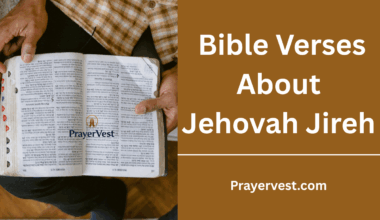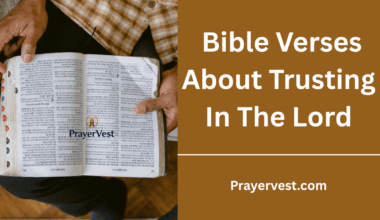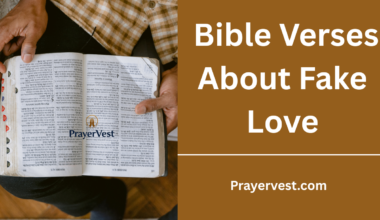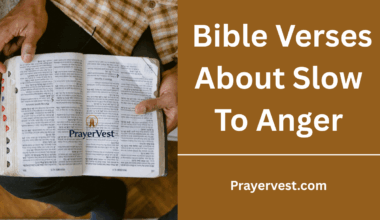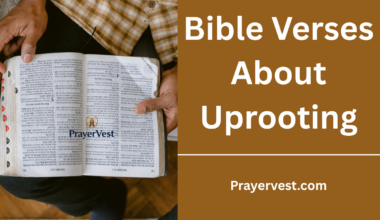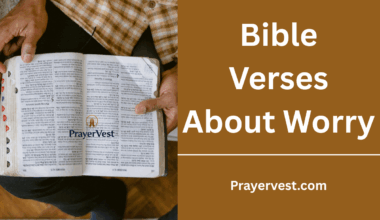One of the most effective mindsets a Christian can develop is gratitude, and the Bible makes a point of emphasizing the value of being thankful in every situation. Being thankful is more than just saying “thank you”; it’s a state of mind that acknowledges God’s hand in all blessings, no matter how minor.
In addition to honoring God, living a grateful life brings us happiness, satisfaction, and serenity that are beyond our comprehension. Scripture tells us that thankfulness is based on God’s unwavering goodness rather than our circumstances.
The Bible refocuses our attention on what we already have in a world that frequently highlights our shortcomings. Gratitude helps us view life through the prism of God’s faithfulness and turns our gaze away from dissatisfaction.
The New Testament exhorts believers to “give thanks in all things,” and the Psalms are replete with sentiments of gratitude. Gratitude keeps our faith strong and our hearts receptive to God’s grace, regardless of whether we are going through prosperous or challenging times.
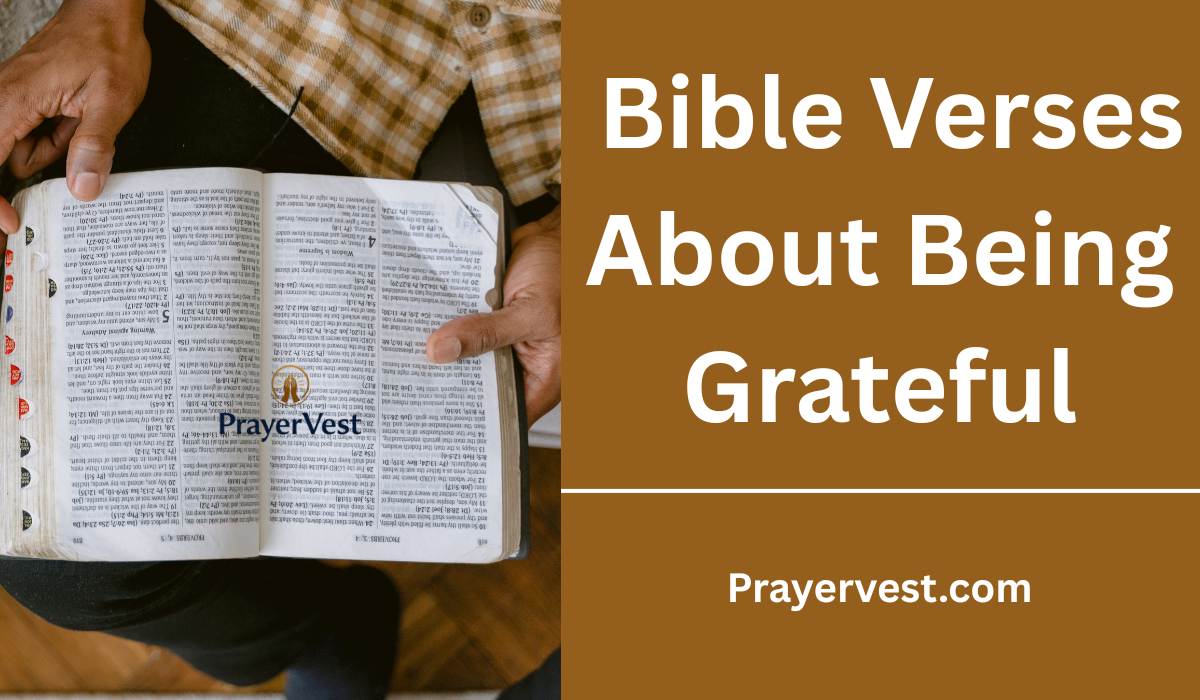

The rewards that result from choosing thanksgiving over complaining are highlighted in these Bible verses about gratitude. They serve as a reminder that being grateful improves our connections with God, others, and ourselves while also increasing our faith in His purposes. May you be inspired to live with a grateful heart as you consider these verses, understanding that the Lord is the source of all good and perfect gifts. Our perspective on life and the way we positively, kindly, and hopefully influence the world around us are both changed by gratitude.
40 Inspiring Bible Verses About Being Grateful (2026)
1. Psalm 9:1
“I will give thanks to you, Lord, with all my heart; I will tell of all your wonderful deeds.”
This verse expresses wholehearted gratitude as an act of worship and testimony. David does not simply thank God in silence; he proclaims God’s goodness publicly. Gratitude in this context becomes both personal devotion and a witness to others. It teaches us that thanksgiving should flow not only from our lips in prayer but also through our lives as we testify of God’s faithfulness.
2. Psalm 30:12
“That my heart may sing your praises and not be silent. Lord my God, I will praise you forever.”
Here, David acknowledges God’s deliverance and responds with eternal gratitude. His thanksgiving is not momentary but lifelong, flowing from a heart transformed by God’s goodness. Gratitude is shown to be more than a response to blessings—it is a posture of continuous worship. This verse reminds us that when God rescues and restores, our gratefulness should be as enduring as His faithfulness.
3. Psalm 92:1
“It is good to give thanks to the Lord, to sing praises to your name, O Most High.”
This psalm begins by affirming that thanksgiving is inherently good and fitting. It declares gratitude as an essential part of worship, linking it directly with praise. The verse shows us that giving thanks is not optional for the believer; it is a joyful duty that realigns our hearts with God’s greatness. Gratitude becomes the melody of our lives, lifting our focus from ourselves to the glory of the Most High.
4. Psalm 107:1
“Give thanks to the Lord, for he is good; his love endures forever.”
This refrain of gratitude is a recurring theme throughout the Psalms, emphasizing God’s unchanging goodness and steadfast love. The verse points us to the very foundation of thanksgiving—not circumstances, but God’s eternal nature and covenant love. It teaches that no matter what season we are in, gratitude flows naturally when we meditate on God’s goodness and His enduring faithfulness.
5. Psalm 95:2
“Let us come before him with thanksgiving and extol him with music and song.”
This verse connects gratitude with worship through music and joyful expression. Thanksgiving here is not private alone but communal, inviting God’s people to gather and exalt Him together. It teaches us that gratefulness can be powerfully expressed in fellowship, where voices unite in praise, creating an atmosphere that honors God’s presence.
6. Psalm 100:4
“Enter his gates with thanksgiving and his courts with praise; give thanks to him and praise his name.”
This well-known verse portrays thanksgiving as the key to entering God’s presence. Gratitude is shown not as an afterthought but as the posture we bring when approaching the Lord. It reminds us that thankfulness opens the door to deeper fellowship with God and transforms worship into a joyful experience of His goodness.
7. Psalm 103:2
“Praise the Lord, my soul, and forget not all his benefits.”
Here, David calls his soul to remember God’s blessings, emphasizing gratitude as a discipline of the heart. Forgetfulness leads to ingratitude, but remembrance fuels thanksgiving. This verse urges us to reflect on God’s past mercies so that we continually live in awareness of His goodness. Gratitude is both memory and worship, rooted in what God has already done.
8. Psalm 106:1
“Praise the Lord. Give thanks to the Lord, for he is good; his love endures forever.”
This verse echoes the recurring theme of God’s goodness and steadfast love as the foundation of gratitude. It teaches us that thankfulness is not dependent on shifting circumstances but on God’s unchanging nature. In seasons of abundance or difficulty, gratitude flows from recognizing that His love never fails and His goodness is constant.
9. Psalm 116:12
“What shall I return to the Lord for all his goodness to me?”
This verse reflects on the overwhelming generosity of God and the believer’s desire to respond in gratitude. It portrays thanksgiving as more than words—it is a response of action and devotion. True gratitude compels us to give back to God, not out of obligation but out of love, recognizing that all we have is a gift from Him.
10. Psalm 118:1
“Give thanks to the Lord, for he is good; his love endures forever.”
This refrain of thanksgiving, repeated throughout the Psalms, highlights God’s goodness as the ultimate reason for gratitude. It invites continual thanksgiving, no matter the circumstance. By focusing on God’s eternal love, we are reminded that gratitude is not tied to fleeting emotions but to the unchanging reality of who God is.
11. Psalm 118:24
“This is the day that the Lord has made; let us rejoice and be glad in it.”
This verse reminds us that every single day is a gift from God and should be received with gratitude and joy. It teaches us to cultivate a spirit of thankfulness in the present moment, regardless of what the day holds. Gratitude becomes a way of life when we recognize that each day is divinely ordained and filled with opportunities to rejoice in the Lord.
12. Psalm 136:1
“Give thanks to the Lord, for he is good. His love endures forever.”
This verse begins a psalm of repeated thanksgiving, emphasizing God’s goodness and steadfast love as central reasons for gratitude. It teaches us that giving thanks is not a one-time act but a continual declaration of God’s enduring faithfulness. Gratitude here is rooted not in temporary blessings but in God’s eternal character.
13. Psalm 136:26
“Give thanks to the God of heaven. His love endures forever.”
The psalm closes with a sweeping call to gratitude directed to the God of heaven Himself. It reminds us that thanksgiving is ultimately not about what we receive but about who God is. This verse calls us to lift our gratitude beyond earthly concerns and focus on God’s eternal reign and unchanging love.
14. Psalm 138:1
“I will give you thanks, Lord, with all my heart; before the ‘gods’ I will sing your praise.”
Here David declares wholehearted gratitude that boldly testifies of God’s greatness, even in the presence of false gods or worldly powers. Thanksgiving is presented as both an act of worship and a declaration of allegiance. This verse teaches us that true gratitude is undivided—it belongs fully to the Lord and becomes a public witness of His supremacy.
15. Psalm 138:2
“I will bow down toward your holy temple and will praise your name for your unfailing love and your faithfulness.”
This verse combines thanksgiving with reverence, showing gratitude expressed in both words and posture. It highlights God’s steadfast love and faithfulness as the foundation of thanksgiving. Gratitude here is both worshipful and relational, flowing from awe of God’s character and His covenant-keeping nature.
16. Psalm 138:4
“May all the kings of the earth praise you, Lord, when they hear what you have decreed.”
This verse expands gratitude beyond personal devotion to a vision of global praise. Even kings and rulers are called to acknowledge God’s greatness with thanksgiving. It teaches us that gratitude has a ripple effect—when we testify of God’s goodness, others are inspired to join in thanksgiving and glorify Him.
17. Psalm 138:5
“May they sing of the ways of the Lord, for the glory of the Lord is great.”
Thanksgiving in this verse is expressed through song, focusing on God’s ways and glory. It reminds us that gratitude is not silent but naturally flows into joyful expression. This verse teaches us that when we recognize God’s greatness, gratitude becomes an anthem that magnifies His glory and draws others into worship.
18. Psalm 145:7
“They celebrate your abundant goodness and joyfully sing of your righteousness.”
Here the psalmist connects gratitude with celebration and joyful song. The verse highlights God’s abundant goodness as the wellspring of thanksgiving. Gratitude becomes a communal act of joy, where God’s people not only remember His righteousness but also proclaim it with gladness.
19. Psalm 147:7
“Sing to the Lord with grateful praise; make music to our God on the harp.”
This verse calls for gratitude expressed through music and worship. It shows that thanksgiving can be both verbal and artistic, using creativity to honor God. Gratitude here is active and expressive, reminding us that thanksgiving should engage both heart and action in joyful praise.
20. Psalm 150:6
“Let everything that has breath praise the Lord. Praise the Lord.”
The book of Psalms closes with a universal call to gratitude and praise. Every living creature is invited to lift thanksgiving to God, showing that gratitude transcends culture, time, and circumstance. This verse teaches us that gratitude is the natural response of all creation to the greatness of the Creator.
21. Psalm 7:17
“I will give thanks to the Lord because of his righteousness; I will sing the praises of the name of the Lord Most High.”
Here the psalmist links gratitude directly to God’s righteousness. Thanksgiving is not only for blessings received but also for who God is—just, holy, and true. This verse reminds us that true gratitude flows from recognizing God’s perfect character, not merely His gifts.
22. Psalm 13:6
“I will sing the Lord’s praise, for he has been good to me.”
David, after lamenting, concludes his prayer with thanksgiving. This shows that gratitude can arise even from seasons of struggle. The verse teaches us that gratefulness often comes not from circumstances changing immediately, but from trusting God’s goodness in every situation.
23. Psalm 26:7
“Proclaiming aloud your praise and telling of all your wonderful deeds.”
Thanksgiving here is not silent or private—it is vocal and public. The psalmist declares God’s works for others to hear, showing that gratitude can be a testimony. This verse encourages us to let our gratefulness inspire others to see and trust in God’s goodness.
24. Psalm 28:7
“The Lord is my strength and my shield; my heart trusts in him, and he helps me. My heart leaps for joy, and with my song I praise him.”
Gratitude flows from experiencing God’s strength and protection. The psalmist acknowledges God as his source of help, which leads to joy and praise. This verse teaches us that thanksgiving is a natural response when we place our trust in the Lord and witness His faithfulness.
25. Psalm 35:18
“I will give you thanks in the great assembly; among the throngs I will praise you.”
Here thanksgiving is presented as a public act of worship before the gathered people of God. Gratitude becomes a witness in community, reinforcing faith and unity among believers. This verse reminds us that thanksgiving is not only private devotion but also a collective act of glorifying God together.
26. Psalm 52:9
“For what you have done I will always praise you in the presence of your faithful people. And I will hope in your name, for your name is good.”
This verse ties gratitude to both past blessings and future hope. The psalmist thanks God for His deeds while expressing confidence in His continued goodness. It teaches us that gratitude is both remembrance and expectation, rooted in God’s faithfulness through time.
27. Psalm 54:6
“I will sacrifice a freewill offering to you; I will praise your name, Lord, for it is good.”
Thanksgiving here is expressed through both offering and praise. The verse shows that gratitude is not just spoken but demonstrated in action and sacrifice. It teaches us that genuine thanksgiving is costly, reflecting a heart devoted to honoring God with both words and deeds.
28. Psalm 57:9
“I will praise you, Lord, among the nations; I will sing of you among the peoples.”
This verse expands thanksgiving to a global scale, declaring God’s praise among all peoples. Gratitude becomes a testimony to the nations, pointing to God’s greatness beyond personal experience. It reminds us that true thankfulness inspires evangelism, as we share God’s goodness with the world.
29. Psalm 69:30
“I will praise God’s name in song and glorify him with thanksgiving.”
The psalmist emphasizes that gratitude glorifies God. Thanksgiving is not only for our benefit but brings honor to His name. This verse teaches us that when we thank God in song and worship, we are fulfilling our ultimate purpose—to glorify the Lord.
30. Psalm 75:1
“We praise you, God, we praise you, for your Name is near; people tell of your wonderful deeds.”
Here gratitude is rooted in the nearness of God’s presence and the remembrance of His works. Thanksgiving affirms that God is not distant but intimately involved in our lives. This verse encourages us to give thanks for God’s closeness and for His active hand in history.
31. Psalm 79:13
“Then we your people, the sheep of your pasture, will praise you forever; from generation to generation we will proclaim your praise.”
This verse highlights generational gratitude, where thanksgiving becomes a legacy passed down through time. It reminds us that gratefulness should not end with us but continue through our families and communities, ensuring that future generations know and praise God’s goodness.
32. Psalm 86:12
“I will praise you, Lord my God, with all my heart; I will glorify your name forever.”
The psalmist demonstrates wholehearted gratitude that is lifelong and eternal. Thanksgiving here is not half-hearted but complete, springing from devotion. It teaches us that true gratitude requires total surrender and becomes an everlasting act of worship.
33. Psalm 92:2
“Proclaiming your love in the morning and your faithfulness at night.”
This verse shows thanksgiving as a daily rhythm, acknowledging God’s love in the morning and His faithfulness at night. Gratitude here is consistent, covering every moment of the day. It teaches us that thankfulness should become a lifestyle of continually remembering God’s love.
34. Psalm 97:12
“Rejoice in the Lord, you who are righteous, and praise his holy name.”
Gratitude is here linked to joy and righteousness. The verse reminds us that thanksgiving flows naturally from a life aligned with God. It teaches us that holiness and gratitude are intertwined, as a righteous heart will always rejoice in the Lord’s goodness.
35. Psalm 105:1
“Give praise to the Lord, proclaim his name; make known among the nations what he has done.”
This verse connects thanksgiving with proclamation. Gratitude is not silent but shared, testifying of God’s works to the nations. It teaches us that being grateful also means being vocal, spreading the knowledge of God’s goodness wherever we go.
36. Psalm 107:8
“Let them give thanks to the Lord for his unfailing love and his wonderful deeds for mankind.”
The psalmist calls for thanksgiving in response to God’s enduring love and mighty works. Gratitude here is not optional but a fitting response to His goodness. This verse teaches us that thanksgiving should be our natural posture when we consider the depth of God’s mercy.
37. Psalm 109:30
“With my mouth I will greatly extol the Lord; in the great throng of worshippers I will praise him.”
This verse emphasizes public thanksgiving, where gratitude is not hidden but declared boldly among worshippers. It reminds us that gratitude should inspire communal worship, strengthening the faith of others as we glorify God together.
38. Psalm 111:1
“Praise the Lord. I will extol the Lord with all my heart in the council of the upright and in the assembly.”
Gratitude is expressed here with full devotion in a community setting. It teaches us that thanksgiving is both personal and corporate, inviting us to share our gratefulness with fellow believers. This verse highlights the beauty of united thanksgiving before God.
39. Psalm 136:3
“Give thanks to the Lord of lords: His love endures forever.”
This verse proclaims God’s supremacy as the ultimate ruler and source of steadfast love. Gratitude here is directed at God’s lordship, reminding us that He reigns over all. It teaches us to root our thanksgiving in God’s authority and His eternal love.
40. Psalm 147:1
“Praise the Lord. How good it is to sing praises to our God, how pleasant and fitting to praise him!”
This final verse portrays gratitude as both good and fitting, the natural response to God’s greatness. It reminds us that thanksgiving is not only beneficial for us but also pleases the Lord. Gratitude becomes a joyful, rightful act of worship that aligns us with God’s will.
Conclusion
In summary, the Bible makes it very evident that being grateful is a way of life that brings us closer to God rather than only a reaction to favors. We can recognize His hand at work in life’s pleasures and difficulties when we develop an attitude of gratitude. Being grateful causes us to see the fullness of what God has already given us rather than what is lacking. Additionally, it strengthens our faith in His promises by serving as a reminder that His love and faithfulness never waver, even during trying times.
In the end, cultivating thankfulness changes how we relate to God and how we engage with other people. A thankful attitude spreads happiness, encourages contentment, and motivates giving. The more we cultivate gratitude, the more we conform to God’s will and demonstrate His goodness in our day-to-day existence. I pray that these Bible verses about gratitude will encourage you to adopt an attitude of thankfulness, seeing every day as a gift from the Lord and every blessing as a chance to thank Him.

